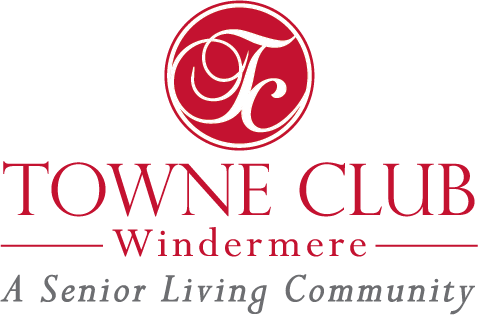Assisted living offers help with daily activities such as bathing and dressing, as well as daily household tasks like cooking, cleaning and laundry. Nursing home care offers a higher level of specialized medical care for those who need the attention of licensed medical staff for long-term or short-term care.
Assisted living and nursing homes are terms that are often used interchangeably, but the living options are very different. To help you make the right senior living decision for you, let’s break down assisted living vs nursing home care.
What is Assisted Living?
Assisted living communities offer support for adults who may need or enjoy additional assistance with daily tasks. Staff is available 24/7 to provide extra help with the activities of daily living (ADLs) which include bathing, eating, dressing, mobility and other essential tasks. Assisted living also helps with the instrumental activities of daily living (IADLs), which include preparing meals and managing medication. While support professionals are available to attend to your needs around the clock, you can opt into whatever level of support you need.
In addition to this long-term support, assisted living offers spacious housing, nutritious prepared meals, wellness programs, laundry services and plenty of opportunities for exploring new hobbies, enjoying time with friends, attending clubs and more.
While some assisted living communities include nursing staff on-site, it’s important to note that these communities are not hospitals. They may offer some healthcare services, but these are not comparable to those in nursing homes or memory care communities, which are dedicated to helping those with memory impairments like dementia or Alzheimer’s disease.
What Support Does Assisted Living Provide?
In addition to dining, housekeeping and maintenance staff, assisted living communities offer 24/7 care from experienced caregivers. Support and services in assisted living communities can include:
- Help with daily living activities
- Cleaning and housekeeping
- Laundry
- Medication management
- Entertainment events
- Social and cultural programming
- Wellness programs
- Fitness facilities
- Nutrition counseling
- 2/7 security
- Accessible transportation
Assisted living is known for its community-oriented lifestyle and engagement. The housing options can range depending on the community, but typically assisted living floor plans include options for shared rooms, private rooms, private apartments and suites. These communities offer a wide range of social spaces, programming, events and activities. Residents are free to spend their time as they please.
Who Can Benefit From Assisted Living?
An assisted living community is a match for people who are looking for a new home they can enjoy long-term, but who would prefer not to live independently as they may need additional support for some daily tasks.
Assisted living is not ideal for adults with ongoing or specialized medical needs. In most cases, while on-site assisted living staff can support some medical needs, more specialized medical needs are better addressed in a nursing home or memory care community.
What is a Nursing Home?
Also known as skilled nursing facilities, nursing home care provides an advanced level of daily care. Nursing care delivers 24/7 medical support to those who need hands-on assistance and secure monitoring. Many adults move into nursing homes after a hospital stay to address more complex medical needs.
Other medical professionals are on staff, like occupational, physical and speech therapists, which may also be available in assisted living communities. However, nursing homes may also have access to medical equipment like ventilators or wound care supplies. They offer long-term care for seniors who might otherwise spend an extended period of time in the hospital, as well as short-term care to rehabilitate those who are transitioning out of the hospital.
What Support Does Nursing Home Care Provide?
Nursing home care provides both basic and skilled medical support. It also provides additional services:
- 24/7 care from nurses and visiting or on-site physicians
- Access to medical equipment
- Assistance with day-to-day activities
- Social and recreational programming
- Cleaning and housekeeping
- Laundry services
- 24/7 security
- Physical, occupational and speech therapy
On average, nursing homes are twice the size of assisted living communities. Due to the heightened needs of residents, the nurse to resident ratio is lower, with more staff on hand to meet personal and medical needs. Nursing home care is also more likely to offer shared rooms versus private rooms and to have a more clinical atmosphere.
Who Can Benefit From Nursing Home Care?
Nursing care is designed for those who have advanced or complex medical needs, from pain management to stroke recovery. Those in skilled nursing facilities often require care that goes beyond the support of assisted living communities.
Depending on the needs of the resident, some enter nursing care for long-term or short-term stays. Many enter nursing homes for a certain period of rehab after an injury or medical complication. Nursing care offers support for residents to recover before they return home or move to an assisted living community. However, nursing care also offers extensive long-term care. This can provide some stability and comfort for those who might otherwise have extended stays in the hospital.
Assisted Living vs Nursing Home Care: What Kind of Support Do You Need?
The main factor in choosing between assisted living or nursing care is the level of support and assistance that you need on a day to day basis. Assessing your ability to perform the activities of daily living – eating, walking, bathing, going to the bathroom and other essential tasks – can help you determine the level of support you need. If you need assistance with ADLs or the IADLs like preparing meals, assisted living might be right for you.
For more advanced medical needs, however, a nursing home might better address your requirements. If you need medical equipment, 24/7 access to clinical professionals, assistance with wound care or rehabilitation, a nursing home might better suit your long-term or short-term needs.
The Bottom Line
Evaluating assisted living vs nursing home care comes down to your personal needs and desires. It’s also a decision you shouldn’t have to make alone. Talk to your family and the staff at the places you’re considering. Above all, a senior living community should make you feel safe, comfortable and well taken care of.
Need help determining the level of care you need? At Towne Club Windermere, we offer assisted living and memory care support, along with independent living for adults who simply want to enjoy their retirement with more amenities and services than they have living alone. Our expert team can help you evaluate your situation and make the right decision for your lifestyle. Contact our dedicated team to answer your questions and learn more about your options.




